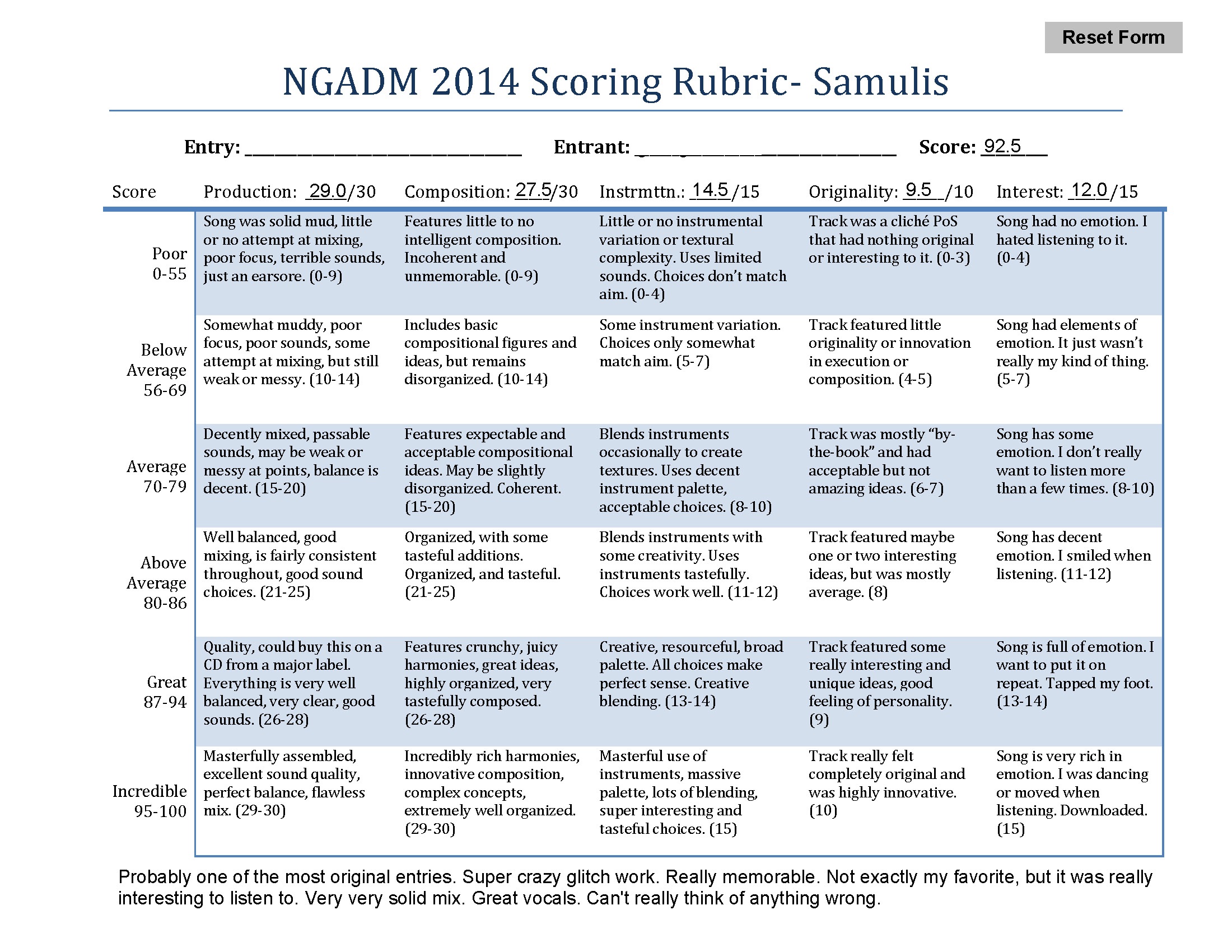The NGADM has concluded, and it's been a great deal of fun. There were TONS of AMMAZZING entires and I am honored to have gotten to judge this year. I'd just like to address a few points quickly about the aftermath:
- My scores and reviews are picky. They follow specific criteria and a formulaic approach to rating pieces and are not purely a matter of personal reckoning; they are numerical analogies of how well your piece used the aspects that form all music. No hard feelings, no personal vendetta, just "here's your piece" and "here's where it could be and how". No, I don't judge this hard when I'm just writing reviews for funzies.
- Reviews are coming soon. If you are missing a review for a round or a song from me, don't fret, I will be working on them this week as I can.
- No, I will likely not be judging next year. Aside from me having horrible work ethics, the activity of having to nitpick other people's work when I know how hard even polite critique can be to swallow. Plus, I wanna compete next time. ;)
- Tongs are good.
Bai.
P.S. For anyone interested, here's an example of my rubric I used for judging:

Troisnyx
Horrible work ethics? At least in my mind you did what you could -- early on, preparing for college would've been a struggle. Go easy on yourself, for unlike us participants, you especially deserve it. I mean, having been involved for this long. ^_-
samulis
Thanks Trois. I try to go easy on myself, but it's hard when there's a lot to get done. ;)